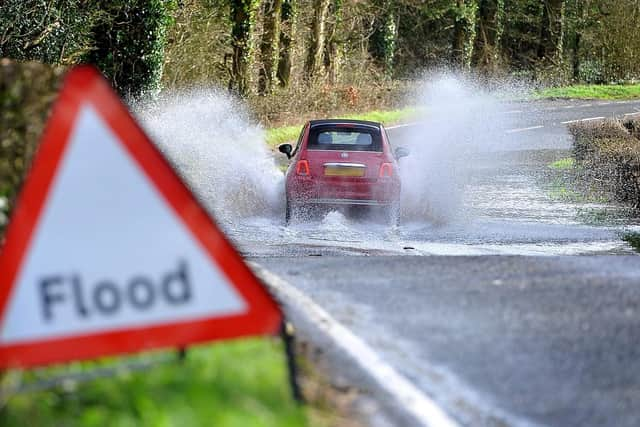Sussex flood warnings: PDSA issues safety advice for pet owners
and live on Freeview channel 276
The Government’s flooding service currently has alerts in place for West Dean, Singleton, Charlton, East Dean and Chilgrove, as well as parts of Brighton.
PDSA vet Claire Roberts is advising pet owners to be well prepared.
Advertisement
Hide AdAdvertisement
Hide AdShe said: “Make sure pets are microchipped and that the contact details registered on the chip are up to date. If you have an outdoor cat, make sure you have a litter tray available for them to use if needed. Should you and your pet be separated, having the correct contact details means you are more likely to be reunited. Pack a bag of emergency pet supplies, including a week’s worth of sealed pet food, fresh water, collapsible food bowls, poo bags, bedding, a lead, medication, and proof of vaccinations.


“Create an emergency flood plan and escape route and keep your supplies in one place for ease of access, and always have a pet carrier in your home for cats or small animals. It is important to make sure they are desensitised to being in a carrier and to never leave them unattended while inside one during a flooding situation. Remember, flood water is often contaminated and could seriously harm your pet if swallowed. Dog vaccinations protect against Leptospirosis, a disease caused by bacteria found in and around water, and can be fatal so, it is important to check that your dog is up to date with their vaccinations.”
Claire said that if people’s homes are at risk of flooding then they should bring any pets that live outdoors inside and shut them in an upstairs room with food and fresh water.
“But try to keep different species of pets separate if possible as they are naturally territorial,” she added.
Advertisement
Hide AdAdvertisement
Hide AdClair continued: “Don’t take dogs outside until it is safe to do so as hidden objects within the water could injure them, and prevent cats from becoming stranded, lost, or hurt by keeping them inside with access to a litter tray.
“If your home is a potential flood risk, you may need to leave quickly if you are told to evacuate. If possible, arrange to stay at a friend or relative’s home that is on higher ground, taking your pets, emergency supplies, dog’s collar and ID tag with you. Insurance companies may move you to temporary accommodation and it might not be possible to take your pet with you. In this instance, be prepared to use a boarding kennel or pet sitter. If you are unable to leave your home, stay in an upstairs room with your pets.”
Other PDSA tips include:
Consider getting life jackets for your pets and family.
Make sure your pet insurance is up-to-date and you have your vet’s contact details.
Check your home insurance policy to see if you’re covered for the cost of pet accommodation.
Advertisement
Hide AdAdvertisement
Hide AdPut important documents in a sealed waterproof bag with a photo of your pet.
People who have no choice but to leave a pet behind are advised to put them in a safe room upstairs with a note on the door for emergency services.
